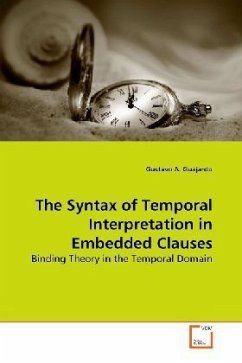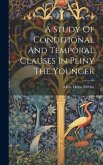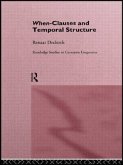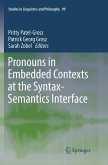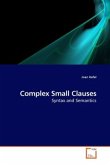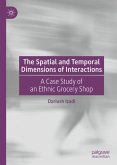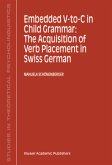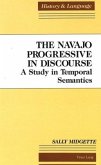This book examines the syntax of temporal interpretation in embedded clauses, specifically in desiderative clauses and embedded commands. By looking at violations of concordantia temporum in the present subjunctive in Argentinean Spanish I argue that embedded verbs in desiderative clauses and embedded commands derive their temporal interpretation through binding. As a result of this analysis it is concluded that the functional category T(ense) is subject to different binding principles depending on the type of clause in which it occurs - T must be free in main clauses (subject to Principle B) but must be bound in embedded clauses (subject to Principle A). This book also looks at the distribution of non-finite forms cross-linguistically and proposes a syntactic definition for non-finiteness, which is argued to stem from binding theory as well. This book aims to contribute to linguistic theory by presenting a solution to violations of concordantia temporum, by establishing a parallel between the nominal and the temporal domain, and by providing empirical evidence that natural language makes use of syntactic relations to arrive at semantic interpretations.

